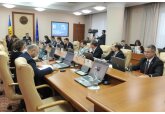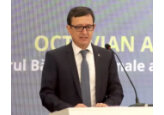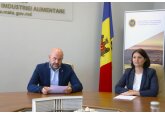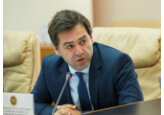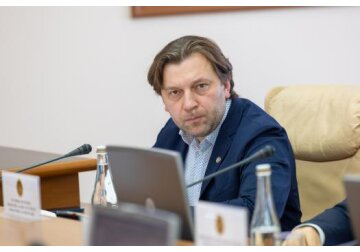
The Government of Moldova approved the 5th Package of measures to de-bureaucratize and improve the business environment.
As Deputy Prime Minister, Minister of Economic Development and Digitalization Dumitru Alaiba said, reducing bureaucracy is one of the strategic objectives of the department, and the 5th Package of measures to de-bureaucratize and improve the business environment approved by the Cabinet included new measures that will eliminate some administrative barriers and unreasonable requirements for economic agents, and administrative costs arising in the activities of an entrepreneur will be significantly reduced. According to the document, economic agents will no longer be required to keep records and report in work books about conscripts and reservists. “Adaptation” medical control, mandatory after 3 months of work for persons exposed to occupational risk factors, will also be abolished. Medical control will also be canceled in the case of drivers starting transportation under the new road map. Another provision concerns changing the requirements for placing a number of food products on the market: juices and other similar products can be sold without a certificate of conformity, only on the basis of a declaration under their own responsibility issued by the manufacturer and an analysis report issued by an accredited laboratory. In addition, access to subsidies will be expanded for many rural tourism structures. Dumitru Alaiba explained that the government’s decision eliminated the obligation for companies to report to military centers about employees. This will allow saving almost 2 million lei annually. On the environmental side, to clarify reporting and avoid different reporting on waste electrical and electronic equipment, the law is being changed to require the same code to be used to report the same type of waste in two separate reports. In the field of food safety, the certificate of conformity for juices is excluded, since laboratory tests are sufficient, and standardization applies to non-food products. In the tourism sector, the right to receive subsidies is being expanded for a number of structures for receiving rural tourists, such as rural houses, tourist guest houses, and craft enterprises. As Dumitru Alaiba noted, in 2022, in total, 11 subsidies were provided for a total amount of 849 thousand lei, which covered the nominal average rate at the beginning of the year, which, according to the NBM, was about 8.6%. Thus, subsidies contributed to the issuance of loans amounting to about 9.9 million lei. The currently proposed amendment will provide access to subsidies for 2 more types of economic activities in the field of rural tourism, including expanding the types of investments supported. Thus, if access is doubled, access to financing could ultimately be facilitated by an additional amount of about 19.8 million lei. The Minister of Economic Development and Digitalization noted that the 5th Package of measures to de-bureaucratize and improve the business environment provides for the exclusion of adaptation medical examinations, which are carried out 3 months after employment and do not bring any benefit, only increasing the administrative burden. According to department estimates, carried out jointly with the Secretariat of the Economic Council and UNDP experts, about 48 thousand of the total number of workers should undergo this inspection annually. The average price of an inspection is at least 200 lei, thus the private sector costs reach almost 10 million lei per year. In addition, each inspection will require at least 2 hours of the employee’s time, which costs about 104 lei, including wages, social security contributions and other related expenses. Thus, the total efforts of employees will amount to about 96 thousand hours per year, which is estimated at almost 10 million lei per year. As Dumitru Alaiba noted, periodic medical examinations will also be excluded for workers who use more than 50% of optical devices (computers, etc.), but currently almost all workers use a computer, and it is no longer a risk factor at work, and applies not only to the ICT sector. A requirement that will apply to approximately 100 thousand employees. The cost of medical examinations of this kind, estimated at approximately 200 lei each, will reach 20 million lei every 2 years (10 million lei per year). In addition, these employees will also spend 2 hours of time each, which will entail additional costs of about 10 million lei per year. As the Minister of Economic Development and Digitalization explained, if we combine two measures (employment adjustment and periodic measures related to vision), the total costs will be at least 40 million lei per year. “From the waybill, which is a separate daily document, we exclude the doctor’s notes. Thus, medical control will be documented independently, without reference to the waybill. This measure complements the amendment proposed to the Road Transport Code as part of Package No. 4, which eliminates the validity of the “waybill”, which currently lasts approximately one day. Medical records are generated on a daily basis and thus may jeopardize the expiration date exception. Thus, this intervention will not have any impact, but will ensure the impact of the legislative amendment, which will be assessed in the process of promoting package No. 4,” said Dumitru Alaiba. According to him, all these and many other measures are designed to stimulate the activity of entrepreneurs.// 01.11.2023 — InfoMarket


